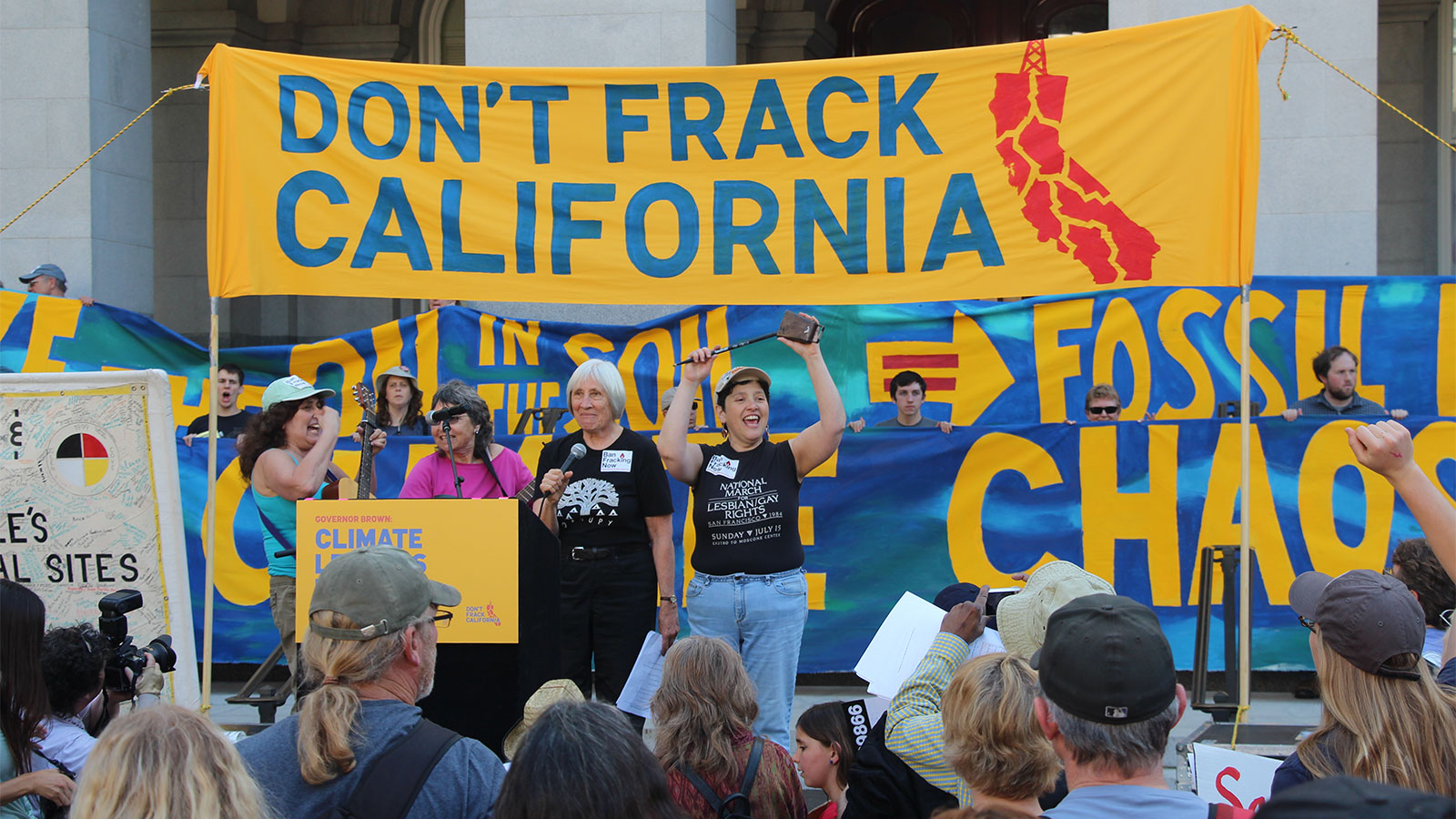On Friday, California Governor Gavin Newsom announced a directive telling state agencies to ban fracking permits by 2024 and to assess how the state can phase out all oil and gas production by 2045. The announcement came a day after Earth Day and, if delivered on, would make the state the first oil-producing state to ban fossil fuel extraction. But advocates are raising concerns that the governor’s announcement doesn’t go far enough — and that it fails to protect vulnerable communities near oil and gas extraction sites.
Newsom has a patchy history when it comes to upholding promises on fracking. Despite its reputation as an environmental leader, California is the country’s seventh largest oil-producing state, and four of the nation’s top seven oil fields are located in Kern County, the state’s biggest oil county. Newsom campaigned in 2018 on the promise to take a tough stance on the oil and gas industry and said he supported a ban on fracking in the state. Nevertheless, Newsom’s administration continued to hand out fracking permits throughout the COVID-19 pandemic. In September, Newsom claimed that his administration’s inaction on banning fracking was due to a lack of legal authority, passing the buck to the California legislature. “We simply don’t have that authority. That’s why we need the legislature to approve it,” he said at a press conference that month. “We have to do more on the demand side.”
In response, two Democrats in the California legislature introduced S.B. 467, which was much more ambitious than Newsom’s current executive order. The bill would have phased out fracking by 2022 along with other more common kinds of oil and gas extraction, including cyclic steaming, water flooding, and steam flooding.
S.B. 467 would have also included a provision that environmental justice activists have been fighting for for years — a mandatory minimum distance of 2,500 feet between oil and gas extraction sites and homes, schools, and hospitals. These minimum distances, known as setbacks, would bring an end to the practice of residential oil drilling in the state, which has a host of negative health impacts for the 7.4 million Californians who live within a mile of an oil or gas well, who are disproportionately low-income and people of color. The bill, however, failed in an April 13 hearing in the California Senate Committee on Natural Resources and Water, due to the no vote of one Democratic senator, Susan Eggman, and the abstentions of two other Democrats, Ben Hueso and Bob Hertzberg. The governor’s announcement of the fracking ban came 10 days later.
“The climate crisis is real, and we continue to see the signs every day,” said Governor Newsom of the ban in a press release. “As we move to swiftly decarbonize our transportation sector and create a healthier future for our children, I’ve made it clear I don’t see a role for fracking in that future and, similarly, believe that California needs to move beyond oil.”
Following the announcement of Newsom’s ban, activists praised the phase-out of fracking but said that the plan doesn’t move fast enough and leaves out the key environmental justice protections that would have been provided by setbacks. “While we believe an earlier end date is appropriate, at least having a set end date will trigger the long-overdue conversation about what a transition away from oil looks like,” said state Senators Monique Limón and Scott Wiener, the co-authors of S.B. 467, in a joint statement following the announcement.
“We welcome this historic announcement that we need a just transition away from oil,” said Martha Dina Argüello, the executive director of the Los Angeles chapter of Physicians for Social Responsibility, a public health advocacy group, in a press release. But Argüello added that the regulatory processes that Newsom’s order sets in motion take time and are “often exclusionary.” “Communities need immediate relief to the heath assaults of oil and gas extraction in the form of an immediate 2500 foot health and safety buffer,” she said. “Justice delayed is justice denied.”



